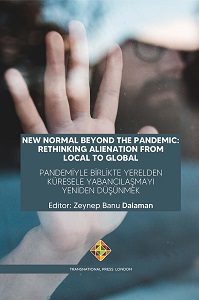Aggrievement and Identity During a Pandemic Due to Conflicts, Policy Decisions and the Media
Aggrievement and Identity During a Pandemic Due to Conflicts, Policy Decisions and the Media
Author(s): William L. Rosenberg
Subject(s): Media studies, Government/Political systems, Health and medicine and law, Politics and Identity, Peace and Conflict Studies
Published by: Transnational Press London
Keywords: aggrievement; identity; political information systems;
Summary/Abstract: The purpose of this article is to bring together the diverse literatures related to the issues of aggrievement and politics, showing how the pandemic exacerbated the problem. The effect is due to limitations of social interaction, shrunken social networks, and selective exposure to news. Fukuyama’s (2018) work on conflict and aggrievement suggests that these concepts may be tied to a sense of one’s identity. Aggrievement can form along multiple dimensions tied to racial, gender, religious and other group identities. A sense of nationalism may contribute to aggrievement. The threats posed to identity are found around the world. People find involvement in Identity politics gratifying, but also makes them more alienated and resentful. A number of potential solutions are explored such as broader information networks and media literacy efforts.
Book: New Normal Beyond The Pandemic: Pandemiyle Birlikte Yerelden Küresele Yabancılaşmayı Yeniden
- Page Range: 95-107
- Page Count: 13
- Publication Year: 2021
- Language: English
- Content File-PDF

